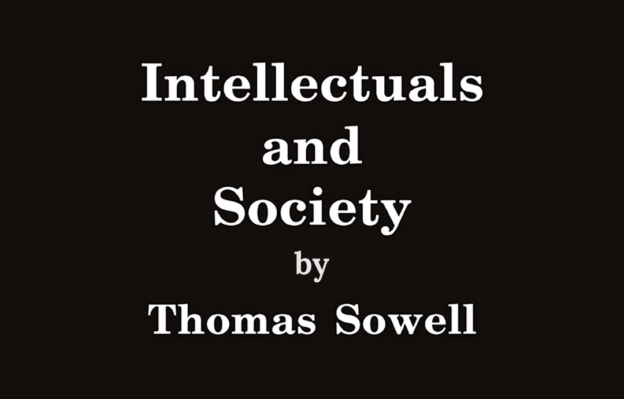“Intellectuals and Society” by Thomas Sowell, a critical analysis.
Overview:
In “Intellectuals and Society”, Thomas Sowell offers a critical examination of the role of intellectuals in shaping societal beliefs, policies, and outcomes. He defines intellectuals as individuals whose work primarily deals with ideas, as opposed to those who deal with tangible realities. Sowell’s central argument is that intellectuals often possess a dangerous hubris, advocating for policies without being accountable for the actual outcomes of these policies. The book also delves into how these intellectuals influence, and often distort, public discourse, the media, and the educational system.
Strengths:
- Comprehensive Examination: Sowell provides a wide-ranging exploration of the impact of intellectuals across various fields, from economics to foreign policy. This breadth provides readers with a holistic understanding of his thesis.
- Historical Analysis: By tracing the influence of intellectuals across different eras, Sowell underscores recurring patterns in intellectual behavior, lending weight to his arguments.
- Sharp Critique: Sowell’s forceful and detailed criticism of the often unchecked power and influence of intellectuals pushes readers to re-evaluate widely accepted societal beliefs and norms.
- Emphasis on Accountability: One of the standout themes in the book is the lack of direct consequences faced by intellectuals for flawed ideas, a point Sowell drives home effectively.
Critiques:
- Perceived Bias: Sowell’s conservative bent is evident, and at times, he seems to be painting all intellectuals with a broad brush. This might lead some readers to view his work as a one-sided critique rather than a balanced analysis.
- Selective Case Studies: While Sowell provides numerous examples to support his thesis, critics argue that he tends to cherry-pick cases that bolster his argument while overlooking instances where intellectuals have had a positive societal impact.
- Generalization: Sowell’s categorization of “intellectuals” can be seen as overly broad. Grouping a wide range of professions and thinkers under one umbrella might oversimplify the nuanced differences in influence and accountability among them.
Conclusion:
“Intellectuals and Society” is a provocative and compelling critique of the role and influence of intellectuals in shaping societal outcomes. Sowell’s rigorous examination and his challenge to the status quo make the book a must-read for those interested in understanding the dynamics between intellectual thought and societal outcomes. While some might find his approach biased, there’s no denying the book’s value in sparking a conversation about the power, influence, and responsibility of those whose primary trade is “ideas”.
